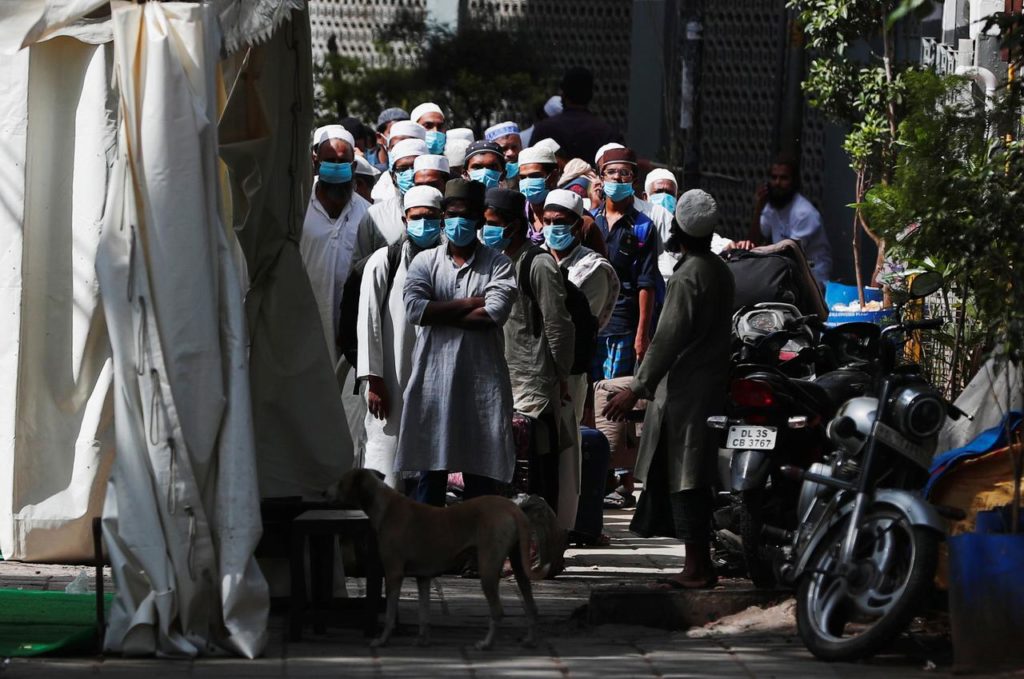Racing To Stop Covid-19, India Scours Mosques
Apr 1, 2020 | Pratirodh Bureau
Men wearing protective masks wait for a bus that will take them to a quarantine facility, amid concerns about the spread of coronavirus disease (COVID-19), in Nizamuddin area of New Delhi on March 31, 2020
As coronavirus cases rose across densely-populated South Asia, authorities scoured mosques in northern India on Wednesday trying to trace people who attended the gathering of a Muslim group in New Delhi that later emerged as an infection hotspot.
Thousands of people from across India and some from countries like Malaysia and Indonesia, had visited the headquarters of the Sunni Muslim missionary movement, Tablighi Jamaat, in a narrow winding Delhi lane last month, participating in prayer sessions and lectures over several days.
With no public transportation and all movement stopped due to a nationwide lockdown, thousands of people had been stranded inside the Tablighi centre’s dormitories after the meeting ended while others had left the city, the administrators said.
Delhi’s Health Minister Satyendra Jain said 2,335 people were taken out of the Tablighi centre and its mosque over a 36-hour period that ended on Wednesday.
“They have been sent to quarantine centres, others who showed symptoms are in hospitals,” he said.
Television images on Wednesday showed health officials in protective gear escorting people out of mosques in Uttar Pradesh as the search for the people who attended and whoever they came in contact with progressed.
“We are asking all these people who attended the meeting to surrender themselves wherever they are in the country, if they are in mosques they must inform officials so they can be taken and put into quarantine,” Delhi deputy chief minister Manish Sisodia said.
India has had 1,397 cases of coronavirus of which 35 have died, according to the latest figures from the health ministry, still a small number compared with the United States, Italy and Spain.
At least 128 cases have been tied to the Tablighi centre, and seven of these have died, making it the first big cluster since infections began spreading in the world’s second most populous country last month.
Prime Minister Narendra Modi imposed a 21-day lockdown that will end in mid-April in a desperate bid to stave off an epidemic among India’s 1.3 billion people.
With hundreds of millions living in cramped, unhygienic conditions, there are fears that India’s fragile health system could be easily overwhelmed if the coronavirus takes root.
But the world’s largest shutdown has left millions of economically vulnerable people jobless and led to a mass exodus from the cities to the countryside.
